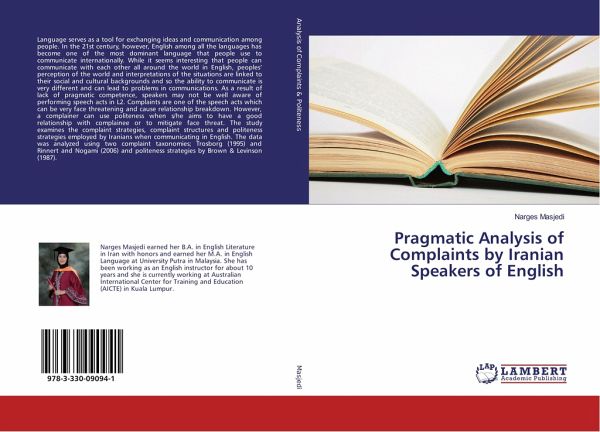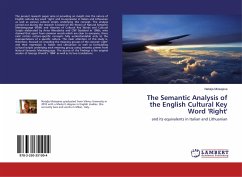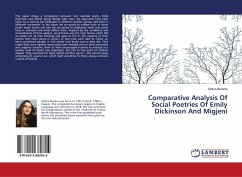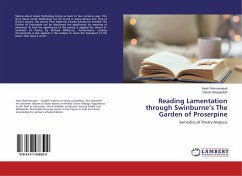
Pragmatic Analysis of Complaints by Iranian Speakers of English
Versandkostenfrei!
Versandfertig in 1-2 Wochen
37,99 €
inkl. MwSt.

PAYBACK Punkte
19 °P sammeln!
Language serves as a tool for exchanging ideas and communication among people. In the 21st century, however, English among all the languages has become one of the most dominant language that people use to communicate internationally. While it seems interesting that people can communicate with each other all around the world in English, peoples' perception of the world and interpretations of the situations are linked to their social and cultural backgrounds and so the ability to communicate is very different and can lead to problems in communications. As a result of lack of pragmatic competence...
Language serves as a tool for exchanging ideas and communication among people. In the 21st century, however, English among all the languages has become one of the most dominant language that people use to communicate internationally. While it seems interesting that people can communicate with each other all around the world in English, peoples' perception of the world and interpretations of the situations are linked to their social and cultural backgrounds and so the ability to communicate is very different and can lead to problems in communications. As a result of lack of pragmatic competence, speakers may not be well aware of performing speech acts in L2. Complaints are one of the speech acts which can be very face threatening and cause relationship breakdown. However, a complainer can use politeness when s/he aims to have a good relationship with complainee or to mitigate face threat. The study examines the complaint strategies, complaint structures and politeness strategies employed by Iranians when communicating in English. The data was analyzed using two complaint taxonomies; Trosborg (1995) and Rinnert and Nogami (2006) and politeness strategies by Brown & Levinson (1987).












